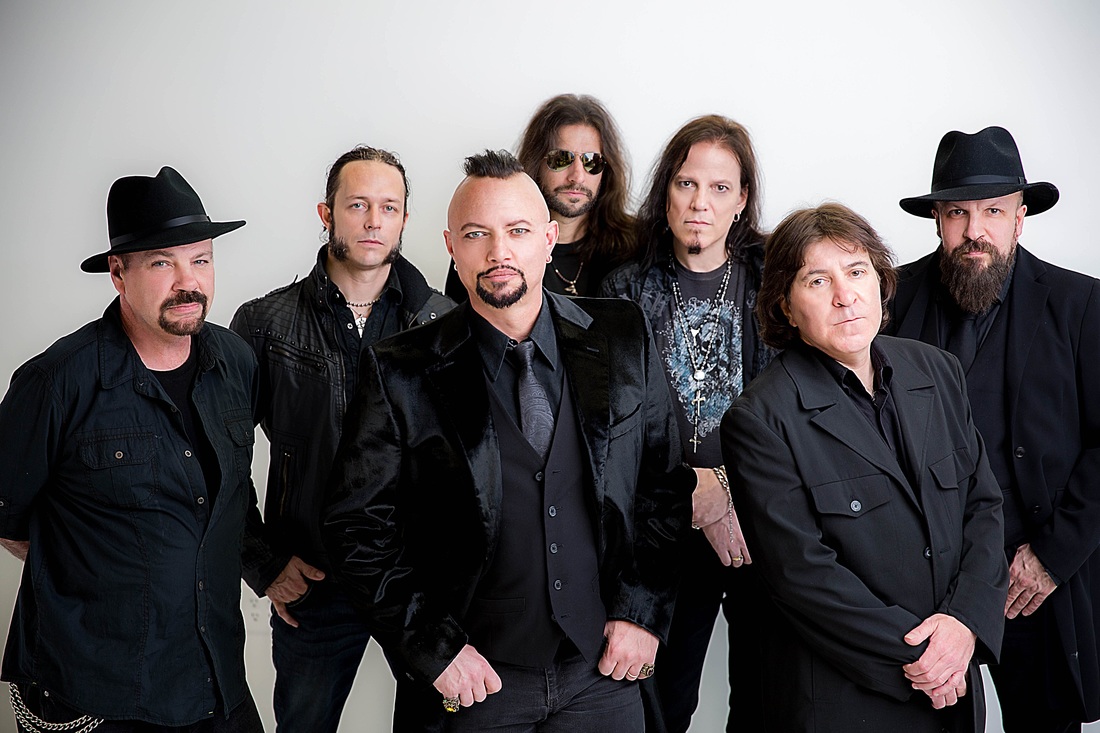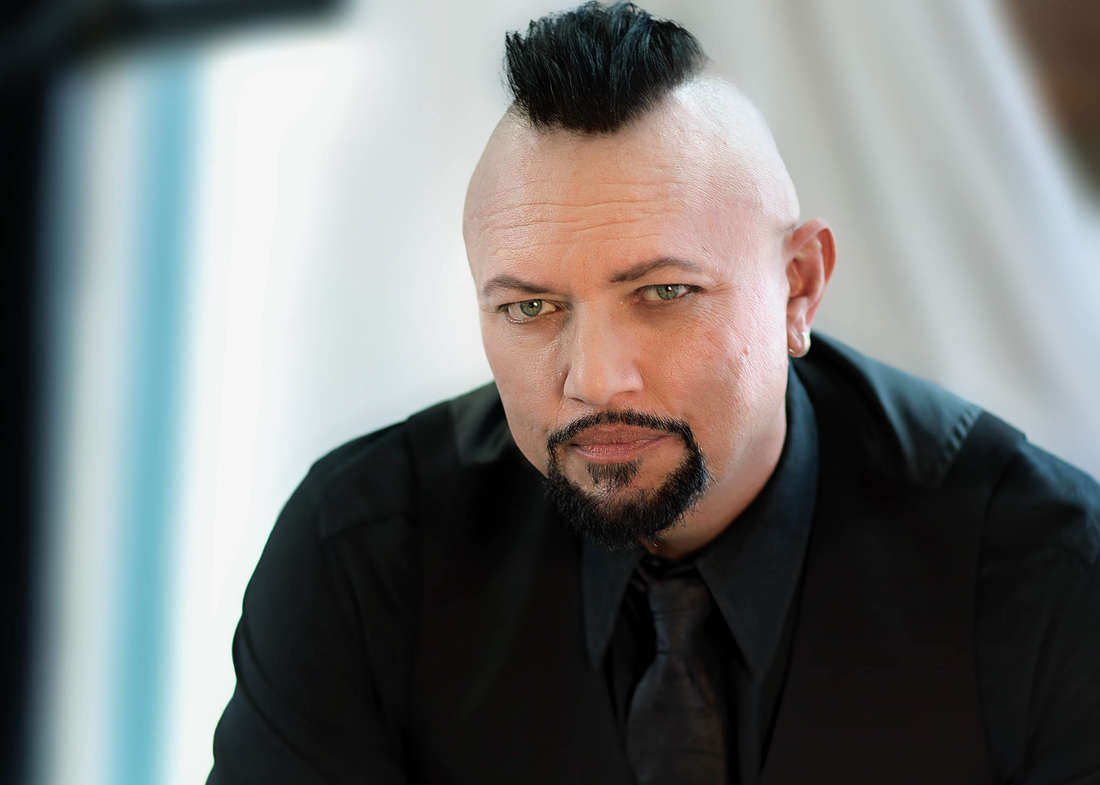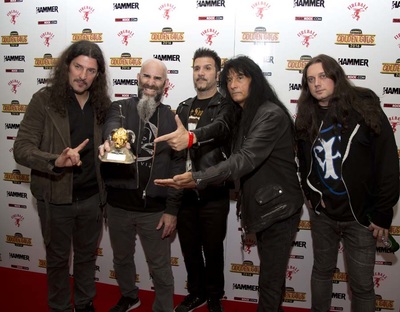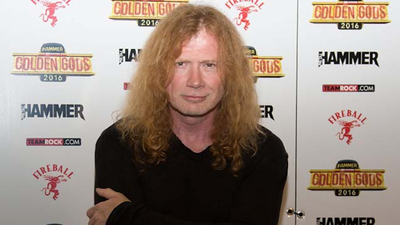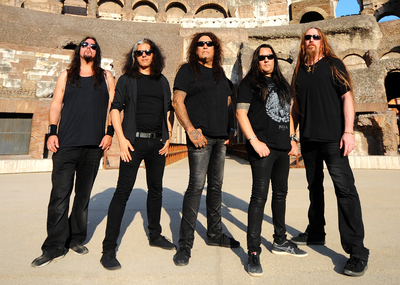|
As the lead singer and lyrical mastermind of Queensrÿche, Geoff Tate is no stranger to ambitious concepts. Releasing a string of albums including 1988’s ‘Operation: Mindcrime’ and 1990’s ‘Empire’, the Seattle outfit went on to sell over 20 million albums. Making a return to those epic pieces, Tate’s latest project; Operation: Mindcrime (the band) has just released ‘Resurrection’, the second part of a sprawling album trilogy. We caught up with Geoff for a chat about the new disc, plans for an acoustic tour, and the final days of his former outfit. Left for dead; Eamon O’Neill.
Hi Geoff, how are you today?
I’m doing great, doing wonderful. You’ve just released part two of your trilogy; ‘Resurrection’, which follows on from ‘The Key’; it’s a pretty dramatic piece, musically, isn’t it? Yeah, I think so. It covers a lot of musical ground, if that’s what you mean. It definitely supports the story, which is what it was intended to do. Like ‘The Key’ before it, 'Resurrection' marks a return to those sonically ‘big’ sounding records. I didn’t really think of it in those terms; it was more about telling a story. Life, for example, is very dramatic; there are things happening all the time, it’s not a static sort of existence that we have, and I think when we tell a story, the music should be the soundscape for what’s happening. This particular story has a lot of drama in it; betrayal, moments of extreme violence, moments of contemplation – it has a lot of different sorts of emotions that it explores, and the music should reflect that. That’s really where my head was at when designing the whole thing. Planning, recording and producing a trilogy of albums seems like a massive undertaking. Yeah, it is. *laughing*. It requires a lot of organisation keeping things in check. You have to write out a plan list; what you want to do, and how you want to go about it, and then have dates that need to be completed. On these albums there’s a lot of different players participating, and a lot of different performances. There’s a lot of organisational details, and that’s just one aspect of it; then there’s the story itself, the arc, and how that works. It’s a story told in three acts, so it has to have a beginning, a mid-section and a resolve, and all those classical things that have to do with storytelling. It’s got to make some kind of sense, and also, it has to satisfy your musical wants and needs that you’re trying to go for. I got really involved with the second album, and got quite a bit more in-depth with it. How far along is the third part of the trilogy? It’s been recorded but it hasn’t been mixed yet. I typically like to record everything and then let it sit for a few months, and then come back to it and mix it at that time, because that gives me a real fresher perspective on the project. The third album is a summary of the project, so it’s a whole different kind of feel. It’s made at the same time, and the same people are involved in making it, but it story wise it has a different kind of presentation, perhaps I should say. Who do you work closest with when the album gets to that production stage? That would be Kelly Gray, who is also one of the co-writers on the album and plays guitar on the record as well, and bass. He was with me in [early band] Myth, and also in Queensrÿche for quite a few years, and mixed and co-produced Queensrÿche over the years as well. ‘The Key’ featured guest artists including Megadeth’s David Ellefson; who did you work with on this one? Dave Ellefson also contributed music for the song ‘Taking On The World’ on the ‘Resurrection’ album, and he also played bass on that song. John Moyer from Disturbed played bass on quite a few tracks. Simon Wright drums on the record, and Scott Mercado from Candlebox also played drums on the album, and Brian Tichy played drums on the record. I have Mark Daly and Blaze Bayley and Rick Rollins vocalising on the record as well. The first video from the album ‘Taking On The World’ features Blaze Bayley and Tim ‘Ripper’ Owens; what made you choose those pair? They were in town, and I’ve known those guys for many years, and they’re really great singers both of them. I had the idea of having three voices on that particular song, and I thought it would be fun to include them on it. They were very obliging, very into doing it, and we had such a great time recording it that we made plans to tour, if we could get it organised. The challenge we have is that we, all three, have very different and busy touring schedules, so getting us all in the same country is really a big deal – it takes a lot of organisation to get us all in the same place! So we have some dates in November, and we’re doing our first tour of a project called ‘Trinity’, and I’m very excited about that. But for the record, really, it was about Blaze being in town; I came to a show and I saw him play, and I was talking to him about my project and I said; “hey, do you have a little time? Do you want to sing on a track?”, and he was very into it, so that’s where the idea started, really. Trinity obviously draws comparisons with the originally mooted ‘Three Tremors’ project that was to feature you, Bruce Dickinson and Rob Halford.
Yeah, well that - The Three Tremors - wasn’t really a real ‘thing’; it was a sort of dinner conversation that kind of spun out of control. But yeah, it definitely echoes that idea. I couldn’t actually get away from it, because every interview I ever did after that asked me about that project all the time, and I’d always have to tell them the story you know, that it wasn’t really a project. You’ve worked with a lot of people in the last few years; did you approach former Queensrÿche guitarist Chris DeGarmo? No, I never asked him. I haven’t spoken with him in several years. You’re coming over to Europe in December and January for some acoustic shows; why did you decide to take that approach? It’s something that I love doing, I love playing acoustically. I’ve done several acoustic performances over the years in various combinations of instrumentation, and this one, the idea came about because I was walking down the street in Cork, Ireland, and I heard this band playing on the street corner busking, and they were fantastic. I heard them from several blocks away, and they were just belting out these songs, and they had such great energy, and the closer I got, the better they sounded. I got up to where they were playing, and I knew two of the guys in the band. One of them – his name is Nathan Daly – he was the brother of Mark Daly who sang on my record. So, I got taking to him and I ended up hiring this band to back me up on my upcoming tour. What instrumentation are you using in the acoustic band? They’re young, great players. We have two acoustic guitars, we have mandolin, violin, cello and me on saxophone, and all of us sing as well, so we have fantastic harmonies. We’ve been rehearsing for the upcoming tour and man, it’s a really cool presentation; very different than I’ve ever done before, and the lads are really into it, and they’ve a lot of energy. That’s one thing I really wanted to experience, was playing with a really energetic bunch of musicians again. That sounds like a real reinvention of the material; what sort of format will the shows take? I’m presenting a storytelling evening. I’ve had a really interesting career; I’ve travelled all over the world to seventy-plus countries, played thousands and thousands of shows, I’ve met thousands of interesting people, and all those experiences have influenced my music. So I’m packing my life story in music, basically, and I’m just telling stories about the songs; the origins of where they came from, humorous stories that have to do with dealing with life on the road, people I’ve met, how they’ve affected me, and how all those experiences have affected the music. You’re actually performing in Belfast in a venue called The Empire – that can’t be an accident. Yeah - that’s not by accident! But I’m so anxious to play in Ireland, because I haven’t played much in Ireland in my life, just a few times. But I’ve been to Ireland many, many times, and travelled all over the country, and I am so impressed by the love of music that the Irish have - It’s everywhere you go; it’s just prevalent, much more than any country I’ve ever visited, and the players in Ireland are fantastic. It’s unbelievable how skilled, and easily people can play music there; maybe it’s because it’s part of the culture, but almost anybody can sing a song that you meet, and people are always in the pubs singing songs and playing music all the time. It’s just a whole different atmosphere than any place I’ve ever been, and I love that about the country. With Operation: Mindcrime, you’ve performed the Queensrÿche album of the same name in full; do you enjoy those sorts of performances?
Well, I’ve performed ‘Operation: Mindcrime’ in its entirety, many times over the years, and performed ‘Mindcrime’ I and II in its entirety several years ago; that was a fantastic experience, I loved that show. We presented ‘Rage For Order’ in its entirety before, we played ‘Empire’, the entire album, before, and we played ‘Promised Land’ in its entirety on the tour for ‘Promised Land’, back in ’94 or ’95; there’s some actually wonderful performances of that album that I have on tape that maybe someday I’ll put together and release, as a video. Have you any plans to perform ‘The Key’ and ‘Resurrection’ in full? I really want to perform the entire trilogy project when it’s finished, after the third album is released next year. I’d like to perform all three albums at the same time. I would probably do a limited concert run and film the whole thing. But it is on my bucket list of things to do in my life, to perform this whole thing as one piece. I’d definitely be into that. Looking back at the end of Queensrÿche, and the final album you did with the band was the much maligned ‘Dedicated To Chaos’; was it the sound of a band falling apart? No, not at all. That was an album that everyone in the band was really into. If you look at the writing credits on the record you’ll see that Scott [Rockenfield, drummer], Eddie [Jackson, bassist] and Michael [Wilton, guitarist] wrote more on that record than they had in years- they probably wrote more on that record than they had on any record in our career. So, no, it wasn’t the sound of a band falling apart at all; in fact, at the time, I remember it being a wonderful experience where everybody was into it. We were all present at the recordings of the record, we were all in the same room, and it was a really good experience. So you are a fan of 'Dedicated To Chaos'? I don’t know if I’d say the whole album is one of my favourite records, but there’s songs on that record; ‘Hard Times’ is one of my favourite, favourite songs, ever. I love the sound of that song, and the way it turned out on the mix and recording of it. There’s a song called ‘Broken’; a haunting, haunting track – I love that track, I wrote that about my grandmother passing away. And there’s another one on there, ‘Big Noize’; what an epic track that is. I actually had the fortune to play that song with my Operation: Mindcrime band several years ago, and I loved that song. That’s one of my favourite all time Queensrÿche songs. Maybe ‘Dedicated To Chaos’ is just one of those great misunderstood records. You know, it’s just one of those weird things about life; somebody passes along some information about some topic, and if enough people pick up on it and start passing around the information, it’s perceived by many as being ‘truth’. And it’s a funny thing about the human condition, especially in modern times, that we don’t question stuff so much anymore; we just read the headlines. The headlines basically form an opinion about almost everything; if you look at the current state of American politics you’ll see exactly what I mean; it’s just a cesspool of misinformation that gets spread around. You’ve got to remember the ‘Dedicated To Chaos’ album, it came out when the band was splitting up, so there were all kinds of people speculating, and writing speculations about what was happening; they were blaming people, pointing fingers, and it was horrible, horrible break-up. Being part of [it] was such a waste of time and energy and money, but it is what happened and it is unfortunate. But you’ve got to remember the context of the situation; like so much in life, we forget about the context – what was going on at the time. The funny thing about that time as well, is that tour after ‘Dedicated To Chaos’ came out, that was out thirty year anniversary tour, and we toured all over the world, and we played songs from all of our records - all the way back to our first EP, we played music from every one of our records, and it was a fantastic tour. Then after that, the whole thing kind of unravelled. Finally, you’ve had such a long career; what albums are you proudest of, and why? I’m probably most proud of albums that had; it’s weird, but I’ve always wanted to create an album that had the same kind of feeling throughout the entire record, where it didn’t jump around through all kinds of different moods and emotions but it just kept this aura of the same feeling throughout the whole record. I tried doing that for years and years and years, and finally achieved it, I think, with the album ‘Promised Land’. That was my favourite album by Queensrÿche for many, many years. And after that, I’d say I’m probably most proud of the trilogy albums, absolutely, hands down my favourite records so far. Like this interview? Like us on Facebook and follow us on Twitter for regular updates & more of the same. Operation: Mindcrime's 'Resurrection' is out now via Frontiers Music. Geoff Tate 2016 / 2017 European Tour Dates. 8 Dec - Ingolstadt, Eventhalle Westpark 10 Dec- Borgo, Priolo 15 Dec - Bochum, Matrix 17 Dec - Zoetermeer, Boerderij 18 Dec - Eindhoven, Dynamo 19 Dec - London, Academy Islington 20 Dec - Norwich, Waterfront 21 Dec -Glasgow, Cat House 22 Dec - Dublin, Voodoo 23 Dec - Belfast, Empire 26 Dec - Burgrieden, Riffelhof 27 Dec - Muenchen, Backstage 28 Dec -Ludwigsburg, Rockfabrik 29 Dec -Mannheim, 7er 3 Jan - Aschaffenburg, Colos Saal 4 Jan - Heerlen, Parkstad Limburg Theater |
|
Geoff Tate
"There were people speculating about what was happening; they were blaming people, pointing fingers, and it was horrible, horrible break-up. Being part of it was such a waste of time and energy and money."
© 2016 - 2024 eonmusic.co.ukContact: [email protected]
|

